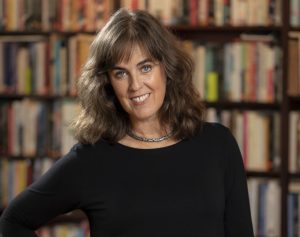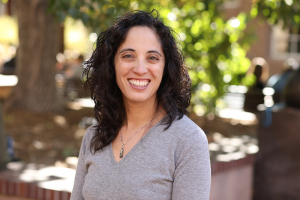

Anica Wong is Quivira Coalition’s communications director and she had the idea for an “ask me anything” episode with Down to Earth host Mary-Charlotte Domandi … and here it is! Listeners asked questions and we answered as best we could, in a wide-ranging discussion about everything from to Anica’s urban farm to our favorite podcasts to Plato’s Republic. We reference many episodes, books, people, and fun stuff, so see the timeline below for links.
TIMELINE
0’41 Anica’s background in farming
2’50 what Anica grows on her urban farm
5’27 about the Ask Me Anything podcast
6’33 Erik Ohlson, author of The Regenerative Landscaper, click here for episode and book
9’38 Listener question 1: What have you learned from your interviews that gives you a hope for a more resilient future?
10’23 Gabe and Paul Brown episode
10’26 Paul and Elizabeth Kaiser episode
11’31 the movement toward small and medium sized local and regional businesses, which are far more sustainable than monopoly capitalism. (See interview with Joe Maxwell)
12’31 the compatibility of science and religious spirituality in regenerative agriculture
13’59 Hubert Karreman episode
14’32 Listener question 2: What have been the most cutting-edge, innovative projects or operations you’ve learned about through your work on Down to Earth?
14’47 Dorn Cox and Courtney White, click here for episode and book
15’22 Goat-scaping and sheep-scaping, Cole Bush and Amanita Thorp Berto, and short video with Amanita.
15’53 Zach Weiss episode on innovative water conservation projects
16’18 Reginaldo Haslett Marroquín episode on regenerative poultry farming
18’25 appropriate technolgy
19’21 John Liu and the Loess Plateau episode
19’56 the wisdom of not optimizing
20’30 regenerative pecan farming, Coley Burgess and Josh Bowman, and short video with Josh Bowman.
20’54 Peter Byck’s films, including the four part series, Roots So Deep You Can See The Devil Down There
21’46 Listener question 3: Can you remember a time a guest said something unexpected?
22’50 Steve Wood episode and the tradeoff between organic pest management and integrated pest management
24’24 organic doesn’t always meet good soil practices
26’02 the challenges of making good consumer decisions about food
26’24 Beth Hoffman episode, author of the book Bet the Farm
27’00 Listener question 4: There are a lot of books about the crises we face, and many of them provide pretty weak “solutions” typically in the last part or chapter, but what are your favorite three books that focus 75% or more on real solutions people can act on?
27’30 Erik Ohlsen (see above)
27’39 Will Harris’s new book: A Bold Return to Giving a Damn
28’03 Liz Carlise, click here for episode and book
28’32 Judith Schwartz episode 1 (Cows Save the Planet), episode 2 (The Reindeer Chronicles)
28’54 Alan Weisman’s book Countdown: Our Last, Best Hope for a Future on Earth?, click here for episode and book
29’24 Gary Paul Nabhan episode 1, and episode 2
29’47 Listener question 5: As a graduate of St. John’s College, what (if any) are some of the classic texts that you think are most useful in this modern age?30’23 indoor agriculture program at SFCC
30’50 Plato’s Republic cave allegory
35’23 Listener question 6: What’s an indulgence that you would find difficult to go without?
40’00 Listener question 7: You always seem so well prepared. How do you go about preparing for your shows?
42’55 podcasts MC listens to: This American Life, Empire, The Moth, Offline, Ezra Klein Show
43’51 podcasts Anica listens to: Radio Lab, Mustang, The Unmarked Graveyard
48’19 Listener question 8: Most of your podcasts are good-news stories about what people are doing to build a more resilient world. Assuming that (some in) our government would be interested in this, what would it take to package a powerful selection of stories and present them to national decision makers and opinion leaders in order to influence national decision processes toward supporting the continued exploration and development of the work we all do?
51’19 write to me at mc@radiocafe.org
52’52 please support us at Patreon



Subscribe:
Apple Podcasts
Spotify